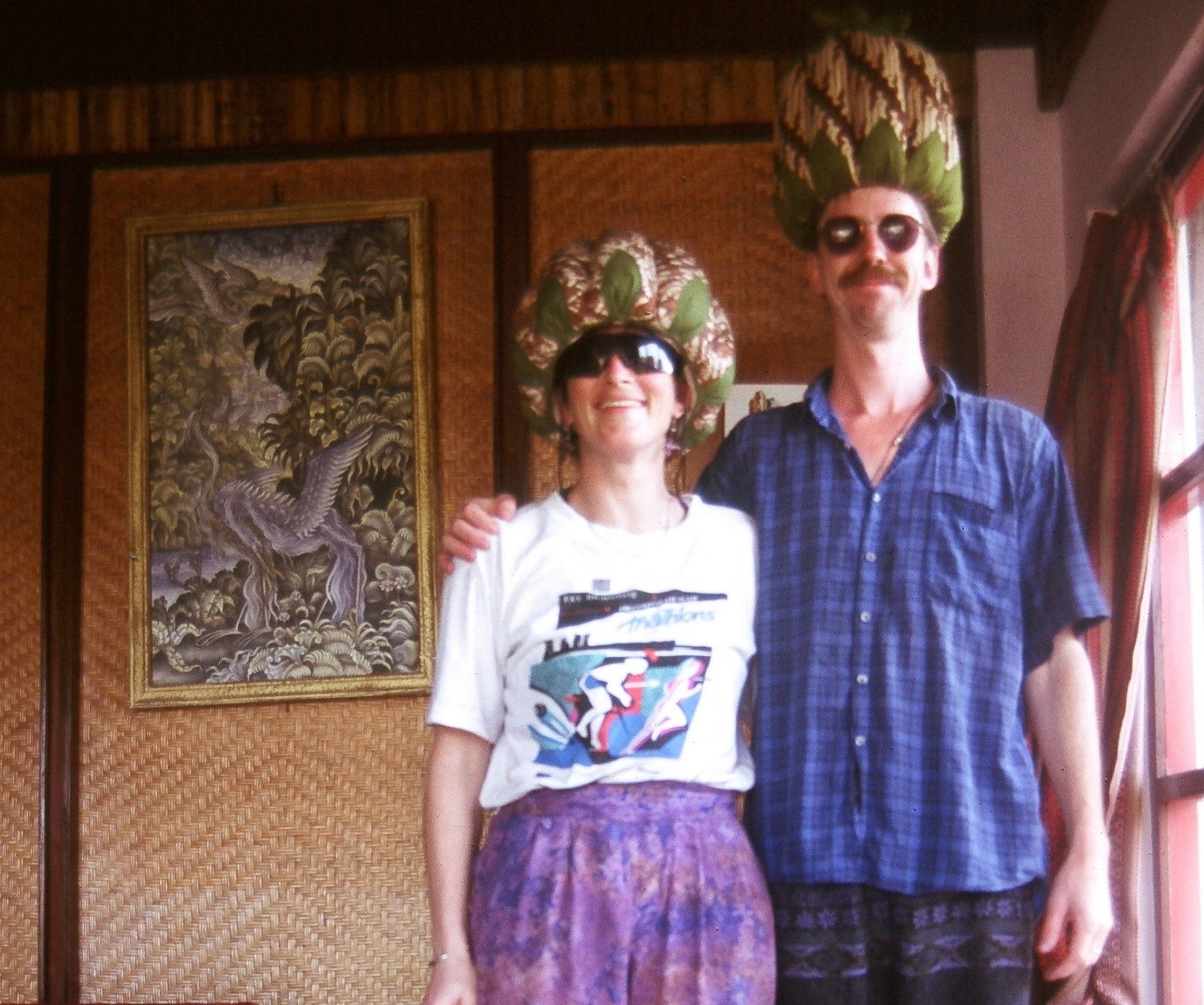Illusions of normality

Human beings are quite amazingly adaptable, while harbouring constant illusions that their current state of being is normal. I don’t generally wear a tea cosy, nor purple (or indeed any) lipstick, particularly not while ski touring in the middle of the Southern Alps. However neither state felt that odd at the moment of the photograph.
In the middle picture above, Chris and I are standing outside the police station in Yining, northwestern China (the theoretically Autonomous Region of Xinjiang) feeling far more normal than when we had entered. A policeman in bright white tennis shoes with a gun slung round his middle beckoned us off the road. We were cycling from the capital of Xinjiang (Urumqi) to Yining (near the border with Kazhakstan), 700km along roads on which there was nowhere we were officially allowed to stay. We got to the boundary of Yining City, having braved high altitude plains in the snow, a 4400m pass beside Glacier Number 1, an area where we were assured there were wolves and a manufacturing facility which resulted in our faces looking all puffy (as is still evident above). Were we now going to be pulled up for travelling through an area where there were no tourist hotels, and clearly we hadn’t cycled 700km in a day? The answer was no, we were being invited in for breakfast. So we sat around a wooden table that left a 60cm perimeter in a room, and appreciated stale bread and chillies and drank salty tea. Afterwards we got to have our photo taken with the sign of the police station clearly in the background. This is not our every day experience for the majority of our lives, but at the time it was our lived normality.
Through quite a lot of varied travel, I have concluded that one’s current state rapidly comes to seem normal, because if it didn’t, one would be in a constant state of stress and anxiety. A feeling of normality is part of what makes us human. Feelings of normality are both reassuring, and a bit disappointing, as ‘not normal’ seems a lot more exciting than ‘normal’. However one does tend to want to be able chose that excitement – the feeling of ‘not normal’ experienced in international travel appears far more desirable than the feeling of ‘not normal’ in a civil emergency, such as COVID-19.
My thoughts around ‘normality’ were actually raised by Sarah being stressed by the new concept that she won’t be able to easily come back to New Zealand for a visit from Cambridge, UK, where she is studying economics. I wondered why she found this so stressful. I started travelling overseas at a time when one did the big OE and stayed away for however many years, until one was ready to come back for the long term. That was even more so for my parents, because they had to travel on a ship! I would never have contemplated coming back to New Zealand partway through my 3 years away for an occasion like a wedding or funeral, as 20 somethings do now. I have engaged in more travel as it has become easier, but my concept of normal includes not being able to travel easily. In contrast, Sarah’s current ‘normal’ is quite different to mine and her adaptability around her perceptions of normal in this regard is being tested.
Sarah’s is a tiny example and we are all being tested right now. Many of us are also hugely underestimating our capabilities as humans and make our lives harder by trying to shelter behind the myth of a stable ‘normality’ to which we can ‘return’ after a time of change. But my normal is not yours, and my normal of January 2010 was not my normal of January 2020. We all age, and we adapt throughout that ageing process to constantly update what is normal; thank goodness my ‘normal’ of when I was 6 months old is not my current normal! We change houses, towns, countries. We change partners, have children, move workplaces, get new friends and lose others. We constantly learn, adapt, evolve, and rapidly forget that the world is is not the same as it was a very short while ago.
There is a constant call at present is for a new ‘normal’, and for us to rapidly find out what that normal might be. At one level we need to participate in this call, in order to create the future we want (insofar as this is possible). However, at the risk of sounding trite, remember that now is your normal. Today is your normal today, tomorrow is your normal tomorrow and next year will be your normal of 2021. This is alright, because this is how you have always lived, and you have always managed through this state. You thought you knew what would happen, but actually you never did – none of us truly imagined this current COVID-19 world. We are all human and our inbuilt aptitude for constant change is what gives us ongoing resilience, as circumstances around us alter. It’s OK, you’ve got this one covered.





